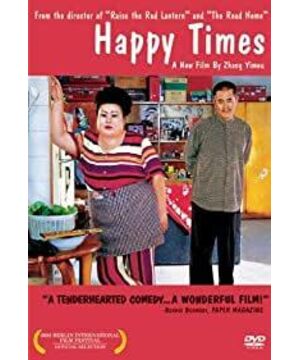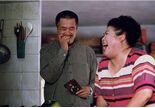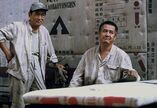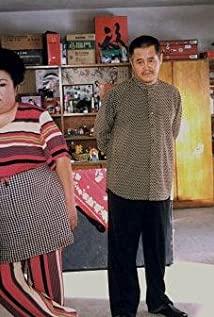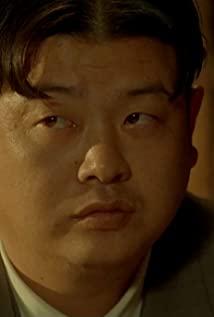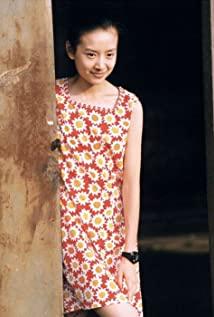I remember that there is an article in the high school Chinese textbook called "Reminder of Happiness", which should be able to explain what happiness is. But at that time, the world was still shallow, and there was little life experience, and the perception of happiness was not too deep. Friends and teachers praised it, and I felt happy when I had delicious food. It can be said that the understanding of happiness is relatively naive, and there is not much awareness.
The source of the protagonist's happiness in the movie "Happy Times" is the same as the source of happiness in "Reminder of Happiness". That is to say, happiness has nothing to do with money, status, honor, or personal image. It is a feeling of the human heart, and it is related to your attitude towards the gains and losses in life.
"Happy Times" is based on Mo Yan's novel "The Master is Getting Humorous". The seemingly light title is actually a tragic story. The protagonist Wu Ying is blind in both eyes and suffers misfortune, but life still slips through deformed happiness like a meteor. The tragedy of life has inspired the greatest compassion and sympathy in the hearts of kind people, and the flower of happiness has quietly opened from it.
When she was in the sixth grade of elementary school, Wu Ying was blinded by a brain tumor. After his father divorced, he reunited with a fat woman with a little boy to form a new family. In order to treat Xiao Wu Ying's eyes, his father went to Shenzhen to work and never returned. Until the age of eighteen, Xiao Wu Ying was abused in a fat woman's house. All the delicious and fun things were only enjoyed by fat women's boys, and even ice cream was an extravagant hope. For Wu Ying, the sense of happiness is almost zero. If there is, it is to listen to the tape on a single player.
Time just passed, until Lao Zhao appeared. Lao Zhao is a retired worker. He is alone and has nothing. In order to have a successful blind date with the fat woman, he lied that he is the boss of the Happy Time Hotel, and agreed to all the requests of the fat woman, including the gift of 50,000 yuan, including the gift of Xiao Wu Ying. Take it to Lao Zhao's so-called Happy Time Hotel to find work.
However, Lao Zhao's so-called Happy Time Hotel is just a place for young people to fall in love with a simple decoration of a large bus that was scrapped in the factory woods. The comedy is that when Lao Zhao took Wu Ying to the Happy Time Hotel as a waiter, the bus was hoisted away by a crane. Lao Zhao could only bring Wu Ying back to the fat woman's house. After going back, the family has changed a lot. The fat woman moved out all the things in Wu Ying's room and replaced it with brand new furniture for the boy to live in. The boy also overbearingly prevented Wu Ying from touching his things. Wu Ying's small self-esteem was hurt, and she ran out of the house immediately. Lao Zhao chased him out, and the fat woman said: Don't bring her back.
In such an unhappy home, the little girl never wanted to come back. Lao Zhao took Wu Ying back to his home. In order to reassure the fat woman, he kept telling Wu Ying that he would definitely arrange work for Wu Ying. However, the so-called job arrangement is to organize several retired uncles and aunts in the factory to build a "massage room" in the workshop that looks like a massage room, and let Wu Ying work in the massage room. The guests were retired uncles and aunts arranged by Lao Zhao, and the tips to Wu Ying were paid by Lao Zhao himself. When Lao Zhao really had no money, an aunt thought of a way to pay Wu Ying a tip with a piece of paper similar in size to money.
Lao Zhao seems to be perfect and designed, but was discovered by the sensitive Wu Ying. But the kind-hearted Wu Ying cooperated in acting in order not to cause trouble to Lao Zhao and his uncles and aunts. Happiness, in this unintentional acting, in the fake but sincere care of Lao Zhao and his uncles and aunts, bloomed in Wu Ying's heart. Out of a man's fatherly care and kindness, Lao Zhao bought Wu Ying a dress with sunflowers, took her to a job interview, bought her an ice lolly, and invited her to dinner. All these bits and pieces of love are to please the fat woman. The unintentional insertion of willows on Wu Ying has become the happiest shade in Wu Ying's life.
However, the ending was also tragic. In order not to continue to cause trouble to Lao Zhao, Wu Ying ran away from home and only recorded Lao Zhao's inner thoughts with a single player. Lao Zhao was also sad and drunk because of the fat woman and another man. He had a car accident and only left a letter to Wu Ying in the name of Wu Ying's father.
The story, in the world of writer Mo Yan, is the life of old master Zhao, full of comics and ultimately tragedy.
But in the heart of director Zhang Yimou, it is the love for the little girl Wu Ying, and the short-lived happiness built on falsehood in her unfortunate life.
The same story, due to different life experiences and different aesthetic concepts, has different themes in the hearts of writers and directors. Emotional attention has a similar tendency.
If the story follows Mo Yan's theme, the film is a comedy with a tragic ending. The reason why it is played by the famous comedy sketch actor Zhao Benshan is also here. However, the work of director Zhang Yimou has weakened the comedy color, and even Zhao Benshan's starring did not make the film's comedy color stand out. The movie is more about devoting emotion and sympathy to the blind girl Wu Ying, which makes the audience cry. It happens to be a light comedy against the background, which makes the tragedy of tragedy more warm with humanistic care.
Dong Jie, the actor of Wu Ying, perfectly realized the director's emotion. The blind woman's inner purity, kindness, yearning for beauty, and strong character are very well reflected. The evaluation of Dong Jie is: Xiaojiabiyu is elegant and dignified, quiet, low-key but not tepid; not impetuous, not flamboyant but has a dark fragrance. As fresh and pleasant as a fragrant pear, with a pure smile like an angel, as well-behaved and innocent as a middle school student.
This naturally reveals the blind woman's quietness, self-esteem, introvertedness, and beauty. Being able to choose such an actor is also the director's success.
Many of Zhang Yimou's films have innocent and cute girl images. In 2010, the love of the hawthorn tree made the pursuit of a pure heroine obvious to the extreme. Having such an aesthetic pursuit is related to the director's own life experience. This is the embodiment of the director's personal complex in the film, that is, as a man who grew up in the old society, the director has a strong and infinite yearning for the youthful and ignorant love between men and women because he has not experienced blank space. The director's virgin complex as a man, the director As a living body, a nostalgia complex for youth.
The shooting and editing are relatively mature, and the dubbing can better reflect and advance the storyline. It's a low-budget, small-production movie.
The disadvantage is that the actors have fewer scenes, and the portrayal of the characters is lacking. I can feel the limitations of the stage play thinking, and I failed to present all aspects of life in the film in a more complete and three-dimensional manner, and the details of the scenes were not paid enough attention. The film format has not formed the style of a great director.
View more about Happy Times reviews


